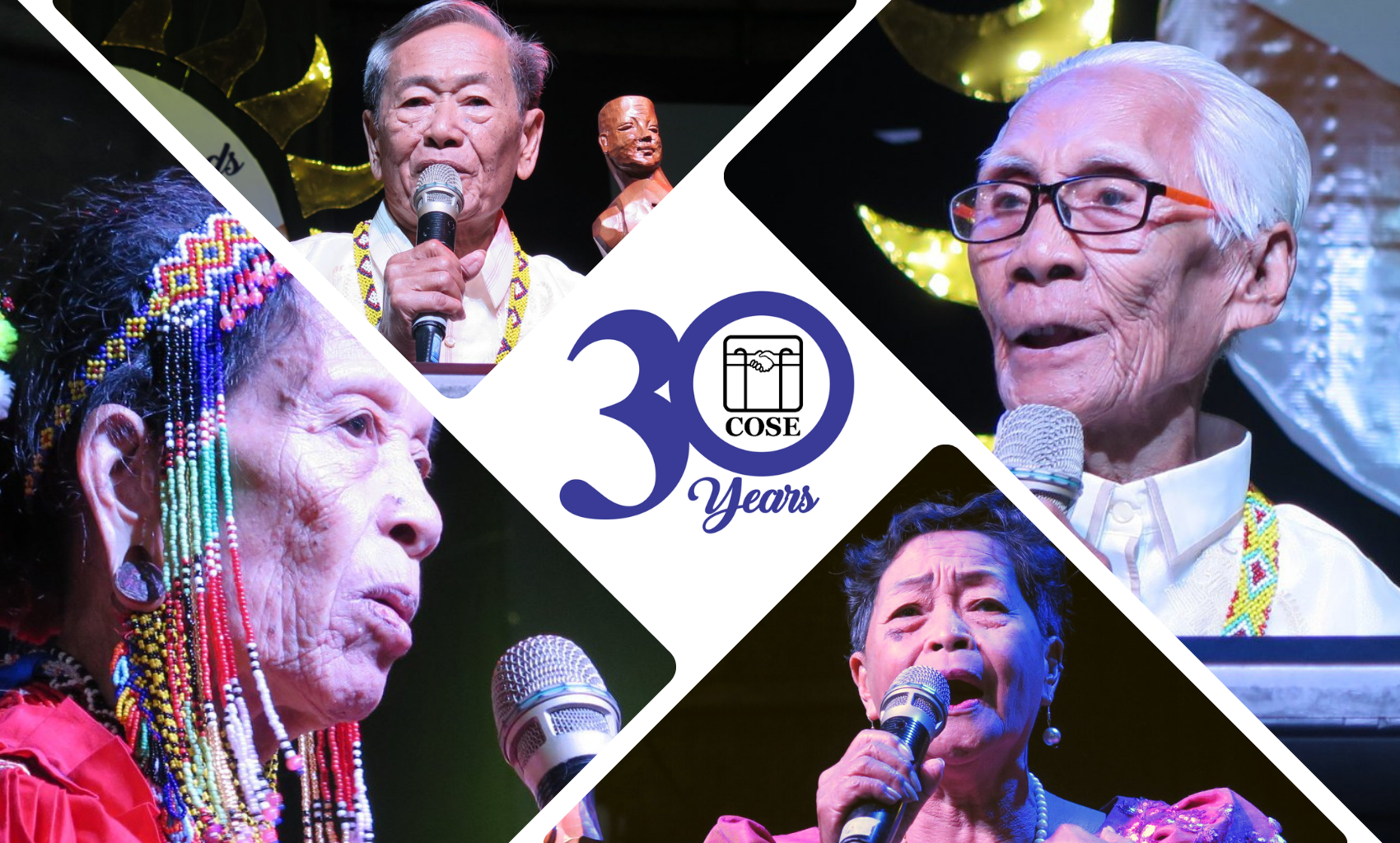Statement of COSE and Senior Citizens Organizations
June 12, 2020
“During this pandemic, the gap between the rich and the poor increases. The double standard guidelines widely separate the so-called power holder and in the position versus those who are nothing to lose in life,” says Confederation of Older Persons Association of the Philippines (COPAP).
Based on Section 2 of the Omnibus Guidelines on the Implementation of Community Quarantine in the Philippines with Amendments as of June 03, 2020 releases by the Inter-Agency Task Force (IATF), “Any person below twenty-one (21) years old, those who are sixty (60) years old and above, those with immunodeficiency, comorbidity, or other health risks, and pregnant women, including any person who resides with the aforementioned, shall be required to remain in their residences at all times, except when indispensable under the circumstances for obtaining essential goods and services, or for work in industries and offices or such other activities permitted in this Section.”
Despite the issuance of guidelines allowing older persons to go out if deemed “indispensable”, many older persons are still complaining that they’ve been barred from getting out to do economic activities or buy essential needs. This is because of the unalike interpretation and unequal implementation of policies at the local level which is a clear example of discrimination against older persons.
“Many implementers from the ground have different interpretation of what is “indispensable” and senior citizens, particularly the poor and less educated, are the victims of this poor policy implementation. Some feels they are being discriminated and generally categorized as vulnerable if you are 60 years old and above,” says Emily N. Beridico, Executive Director of the Coalition of Services of the Elderly (COSE).
Meanwhile, in 2019, the Department of Labor and Employment said that “statistically an improvement can be seen in the number of employed senior citizen or those 65 years old and over. From 1.5 million in 2013 and 1.6 million in 2017, it went up to 1.8 million last year.”[1]
While older persons appreciate the continuous effort of the government in protecting them not to get infected with the coronavirus, the government must not forget that many older persons are still actively contributing to the economic development of the country. Also, the government should always keep in mind that many older persons in the informal sector do not have any form of pension and thus, they need to work to make ends meet.
It is not acceptable that the policies that supposed to be protecting and giving older persons’ equal rights and freedom to access and benefit from the government programs and services are the same system and policies that clearly and blatantly discriminating, and excluding older persons, making them feel weak, useless and hopeless.
Thus, COSE, COPAP and other senior citizens’ organizations are calling for the government and the IATF to review and revise the “omnibus guidelines” on the different community quarantine categories and consult older persons or the organizations representing their sector.
“Don’t put us in one box. Older persons have commonalities but we also have differences. Don’t treat us as a weak, sickly, burden, and waiting only for assistance from the government. Instead, recognize our capacities and treat us as productive members of the society, who are still capable to work to support our daily needs,” says Rita L. Francisco ng Alliance Senior Citizens of Valenzuela.
Additionally, we also demand for clear guidelines with translation to the local dialect and are properly disseminated from the national down to the local level. This is to protect and ensure that older persons are free to go to work and access essential needs without fear of getting caught, tag as violators, and put into jail.
“What we need is an equal treatment from the government and the implementer. Don’t suppress our rights to work and earn a living for ourselves and our families. Free us from all the discrimination that we are facing,” Francisco added.
Ms. Beridico emphasized that “ensuring the safety of older persons, regardless of economic status in life is everyone’s responsibility, yet the government has the accountability and bigger responsibility in protecting and making them safe at all times.”
SIGNED:
Coalition of Services of the Elderly, Inc. (COSE)
Confederation of Older Persons Association of the Philippines
Alliance Senior Citizens of Valenzuela
[1] Dominique Tutay of DOLE’s Bureau of Local Employment revealed that the employment of seniors has increased in the last two years, not only providing added income to their families but also helping boost the country’s economy.
https://www.philstar.com/headlines/2019/11/29/1972736/more-elderly-getting-employed

